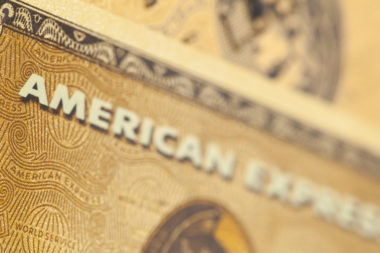The concept of a “Swiss bank account” has gained a foothold in the world of modern pop culture. The term is typically associated with secrecy, mystery, and even criminal activity.
The truth is, though, Swiss bank accounts are a genuinely viable option for any honest person looking to safely invest their money in a secure bank account. In fact, there are several reasons that opening a Swiss account can be particularly beneficial when compared to the alternatives.
Table of Contents
What Is a Swiss Bank Account?
Before we dive into the details, it’s important to understand what a Swiss bank account is in the first place. Simply put, a Swiss bank account is an account opened in a Swiss bank. While it may seem anticlimactic, it really is that simple.
However, the seemingly mundane act of depositing your hard-earned funds into a bank in a tiny country in the heart of Europe thousands of miles away actually provides several distinct perks that are hard to find in any other financial institution in the world.
Pros and Cons of a Swiss Bank Account
When it comes to non-Swiss citizens, typically individuals and organizations that possess a significant amount of wealth are the entities most interested in opening a Swiss account. This is because the banks in Switzerland are famous for their privacy and security.
In 1934 the country passed the Federal Act on Banks and Savings Banks which created government oversight for how the nation’s banks disclose private information. This, combined with the nation’s remarkable ability to remain at peace, has created an unparalleled level of trust for the Swiss banking system.
Pros of a Swiss Bank Account
Here are the primary reasons so many people keep their funds in an offshore account in Switzerland.
- Fund Security. Let’s start off with the obvious — if you put your money in a Swiss savings account, it’s going to be safe. The Swiss banking system is virtually airtight, especially when compared to other financial institutions. This provides an unprecedented level of safety for funds deposited in a Swiss bank. On top of that, the already impressive security is even being backed by the Swiss Bankers Association.
- Privacy. In addition to the protection of the money itself, a Swiss bank provides a high level of privacy. The Federal Act on Banks and Savings Banks, while altered from time to time, has continued to be a force that safeguards the personal information of every honest person using the Swiss banking system. To put it another way, by law, Swiss banks aren’t allowed to disclose information about the existence of a bank account, let alone the personal information associated with it. It’s literally a criminal offense.
- The Swiss Economy. Finally, there’s the Swiss economy itself. A solid economic foundation is a key element to a sustainable banking system, and the Swiss economy has proven its longevity in spades. It is advanced in scope and is considered one of the richest landlocked countries in the world.
Cons of a Swiss Bank Account:
While there are many positives to a bank account in Switzerland, there are also a few negatives you’re going to want to consider.
- Convenience. While you can certainly access funds kept in a Swiss bank account, the overall convenience of access is typically lower than other, less secure accounts. This is a natural side effect of institutions focused on privacy and security.
- Fees. Many Swiss banks charge fees to open or maintain a bank account. Once again, this is a natural result of a higher level of privacy and increased security measures. In addition, some more elite banks require very high minimum deposits, often thousands of dollars, in order to open an account. At times, minimum balances must be maintained as well.
- Less Secure Than in the Past. While Swiss accounts are famous for their privacy, in the modern era they are certainly less impregnable than in the past. While it’s true that Swiss banks aren’t typically allowed to disclose personal information about their clientele, they are more willing to do so these days if a government agency specifically suspects serious tax-related or criminal behavior.
How to Open a Swiss Bank Account
If you’re thinking about opening a Swiss bank account, the good news is that it’s not a very complicated process. However, there are a few extra things that are required and it may take a bit longer than usual, due to the overseas nature of the transaction as well as the more complex protocols involved.
For instance, it’s unlikely you’ll be able to open an account online, due to the nature of many of the proofs required. However, you may be able to initiate the action over the internet and then either visit the bank in person or wait for snail mail to complete the process.
While the specifics can vary, typically opening your own Swiss bank account involves the following.
- Age Requirements. The applicant must be at least 18 years old.
- Personal Information. An application must be filled out providing all of the typical personal information such as one’s name and address.
- Proof of Residence. Proof of your address will also be required and can typically be provided via a bank account, utility bill, lease agreement, or any other hard proof.
- Proof of Identity. Validation of your identity will also be necessary. Often this cannot be simply a driver’s license, either, but must be an international document — typically a passport.
Further Documentation
Along with the aforementioned items, you may also need several other Swiss bank-specific documents. These are often needed to open offshore bank accounts or may be required as further proof that you’re not engaging in illegal activities.
Documentation requirements may include:
- Bank Statements. Some offshore banks require existing bank statements to further solidify your past financial history.
- Pay Stubs. Once again, proof of income may be asked for. This isn’t simply to show that you have money coming in. It may also be used to ensure that your money is coming from legitimate sources.
- Sales Documents. If the money being deposited isn’t from a paycheck, but rather from the sale of a property, house, car, etc., you may need to provide proof of the sale.
Once your documentation has been approved and your account is open, you’ll be at liberty to close the account whenever you want to.
Accessing a Swiss Bank Account
While opening and closing accounts are important parts of the banking process, the most common thing you’ll likely be doing with a Swiss account is accessing your existing money. While more restricted, as previously mentioned, there are still plenty of ways to do so, including:
- Cash. If you’re in Switzerland itself, withdrawing cash is banking business as usual. If you have an offshore account, you should still be able to withdraw cash, although a fee may be charged.
- Checks. You can also use checks, although traditional checks compromise the secrecy of your account and are typically the least used option. If you’re a fan of checks as a payment option, consider using traveler’s checks instead (see below).
- Credit and Debit Card. You can also use a credit card or debit card from your overseas financial institution. However, once again, this may compromise your secrecy, as a charge can typically be traced. In addition, fees will be charged if you take a cash withdrawal, and you will likely be required to provide a security deposit of one to two times the monthly limit on the card.
- Transfers. Another option is to transfer your money to another bank. However, this will reveal the Swiss bank you’re using at the least and may require that even more information is provided, depending on the financial institution you’re transferring the funds to.
- Travelers’ Checks. Finally, we have traveler’s checks. These provide an easy way to access your funds while simultaneously preserving your privacy. However, they typically charge a small percentage as a commission on each check.
Swiss Bank Accounts
While they may have a bit of a pop-culture reputation, Swiss bank accounts can actually be an excellent banking option. This is especially true for anyone looking for a secure place to deposit funds as well as preserve their privacy.
If you decide to open up your own Swiss bank account, just remember that it may take quite some time and will likely require a bit of sweat equity to get things set up. Once done, though, you’ll be able to rest with the knowledge that your money is safely stored in the heart of one of the greatest financial institutions in the world: the Swiss banking system.
Image Source: https://depositphotos.com/





